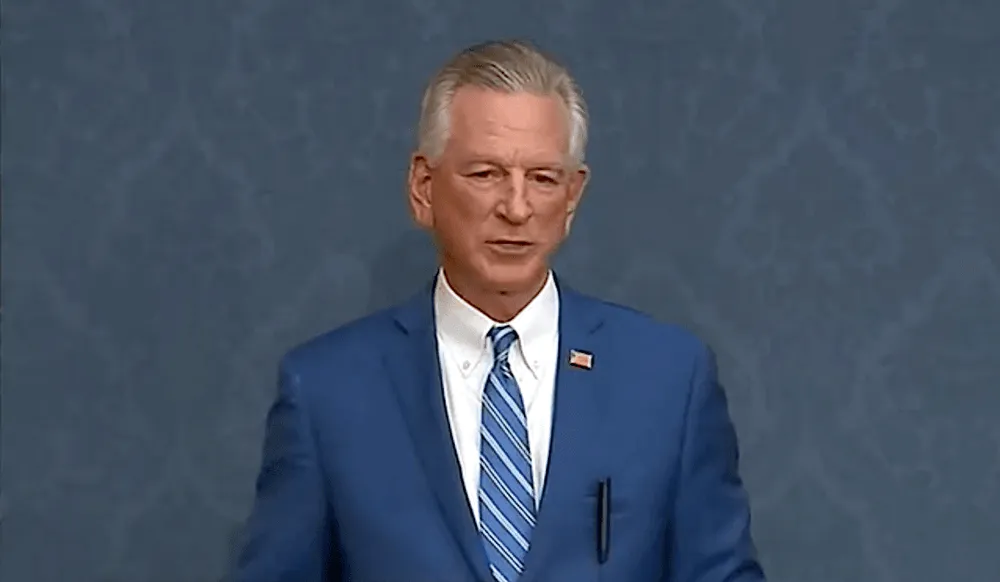Republican senator continues blocking military picks, including cyber leaders
Sen. Tommy Tuberville on Wednesday refused to yield to his Republican colleagues and lift his months-long hold on nearly 400 senior military promotions, including several nominees for key cybersecurity posts.
Ultimately, Tuberville stood and objected to 61 nominees that a group of GOP senators, led by Dan Sullivan (AK), tried to confirm by unanimous consent, including Air Force Lt. Gen. Tim Haugh, U.S. Cyber Command’s deputy chief, who is President Joe Biden’s pick to lead the digital warfighting organization and the National Security Agency.
Tuberville also objected to the reappointment of Vice Adm. Craig Clapperton, head of the Navy’s Fleet Cyber Command.
The hours-long faceoff on the chamber floor was the latest development over Tuberville’s blanket hold, which began in February to protest a Defense Department policy that covers the costs for military personnel to travel to seek an abortion.
Despite the anger of his colleagues, Tuberville, who represents Alabama, said he would not budge.
“I cannot simply sit idly by while the Biden administration injects politics in our military from the White House and spends taxpayers’ dollars on abortion,” he said.
Other cybersecurity leaders have been caught in the Senate bottleneck, including Army Maj. Gen. William Hartman, who has been tapped to be the next No. 2 at Cyber Command, as well as a new chief for Marine Corps Forces Cyber Command.
Senate Armed Services Committee Chair Jack Reed (D-RI) is working on a resolution that would allow most military promotions to be grouped together in a single vote. That legislation would require 60 votes, meaning it would need the support of at least nine Republicans.
"Men & women have been denied promotions. We have done best we can to honor request of a fellow senator that these nominations be brought to floor & voted on individually. I really respect men of their word. I do not respect men who do not honor their word"
— Howard Mortman (@HowardMortman) November 2, 2023
- Ernst on Tuberville pic.twitter.com/4W2dywdfLf
Martin Matishak
is the senior cybersecurity reporter for The Record. Prior to joining Recorded Future News in 2021, he spent more than five years at Politico, where he covered digital and national security developments across Capitol Hill, the Pentagon and the U.S. intelligence community. He previously was a reporter at The Hill, National Journal Group and Inside Washington Publishers.



